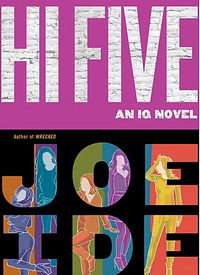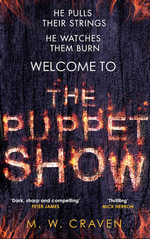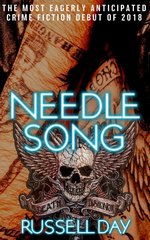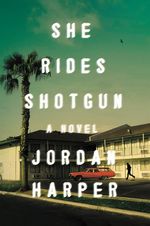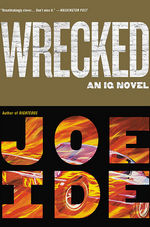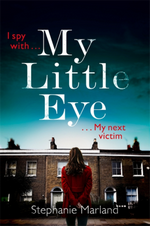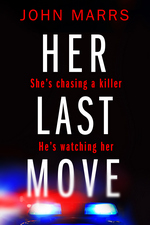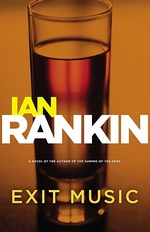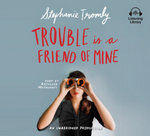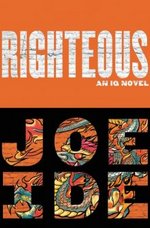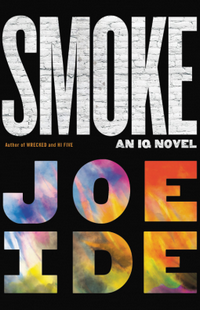 |
SmokeeARC, 336 pg. Read: February 8-12, 2021 |

Not that any of the previous IQ novels have been cookie cutters of the rest, but this really feels less like an IQ novel than I was ready for. In fact, it felt* like this was more of a Juanell Dodson novel for most of it. When Isaiah left town at the end of Hi Five, he left his friends behind. But their problems didn’t leave with him, they all have to step up and take care of things now without him. But the way they go about taking care of these problems is heavily influenced by Isaiah—he might not be playing an active role in most of the storylines in this book, but this is still his book.
* Yes, I said “felt like,” I could be wrong. This isn’t the kind of blog where you’re going to find me doing word counts to prove things like this.
The LA Stories
Grace is trying to get over Isaiah and focus on her art. She’s got a show coming up and needs to get some more paintings ready—that’s all that matters.
But while she and Isaiah know they’re over—most people don’t (and some of those who do know, believe it’s temporary). When someone that Isaiah helped put away gets back to town and is looking for a little payback, he only hears that Grace is Isaiah’s girl. Which puts her right in the cross-hairs.
Deronda’s life is going great—she’s getting some media attention for her success (which is only serving to build that success), her food trucks are doing great, and her son is fantastic (just ask Deronda, she’ll tell you). But then someone comes along to help himself to a share of that success and uses Janeel as his tool. Deronda goes nuclear and tries everything she can think of to stop this.
Grace tries to help—and gets one of Isaiah’s former clients involved, too. And even Dodson gets in on it. There’s nothing about what they try or the solutions they come up with that Isaiah would have done. In fact, I’m pretty sure he’d have seen some of the problems with her theories and stopped Deronda before she tried to act on them. But for fear of repeating myself, without Isaiah’s influence on the three of them, none of them would’ve tried anything like they did.
Cherise has had enough of Dodson’s bouncing around from opportunity to opportunity, trying to make some money, but with no stability. He needs to grow up and get a real job, and to help with that, she’s arranged for an internship at a local advertising agency. Dodson isn’t interested at all in this, but she’s not negotiating.
So he shows up for the first day, and something clicks. He thinks about the way Isaiah had approached goals in his life and applies it in his way to this situation. It wasn’t quite a “What Would Isaiah Do?” thing, more of a “How Would Isaiah Do This?”
Now there is zero percent of the Dodson storyline that is Crime Fiction. It’s about character development, character growth—it’s a transition point for Dodson. Yet this is my favorite part of this Crime Novel. Because it’s Dodson going through all this. Also, as Dodson pops up in their storylines to help Grace and Deronda, he gets plenty of Crime Fiction action.
There’s a fun part of this storyline where Dodson, who started as Isaiah’s Dr. John Watson, now becomes an Eliza Doolittle figure. Cherise’s mother, Gloria, who tries to equip him into someone who could make it in the Corporate World. On the one hand, I felt bad for poor Dodson—this wasn’t easy for him—but man, it was funny. We also got Dodson’s commentary on Pop Music and TV—which is not to be missed.
The LA stories interweave, Grace helps Dodson, Dodson helps Grace, Dodson chips in with Deronda…and so on. IQ is mentioned, he’s talked about and he even converses with some of them—but not about the challenges they’re dealing with (and vice versa) in this novel. He’s as removed from their stories as possible. Yet, without him, without his influence in their lives—none of this would’ve happened. So it absolutely was still part of an IQ novel, even if it was for all intents and purposes IQ free.
Isaiah’s Story
Isaiah’s trying to be IQ-free, too. He’s pulled up stakes to get away from the enemies he made in Hi-Five, and away from everything else, too. He’s decided he wants a new life. He wants nothing to do with the violence, the depravity, the danger that has so characterized the last few years of his life.
Which, of course, means that despite his best efforts—and really by dumb chance—he’s brought into a hunt for a serial killer by one of the least likely, least credible people we’ve encountered in this series.
While I did say this felt like Dodson’s book most of the time, at one point the Isaiah/Serial Killer story took over—and we see heroism and depravity on display (not quite in equal parts, but we get an excess of both). As much as Isaiah has said he wants away from this life—when the chips are down, he finds a way to try to stop another murder, at great risk to himself.
The final confrontation can be seen as darkly comic or as intensely human and maybe even realistic to an extent you don’t usually see. There’s a visceral desperation to it—everyone involved seems to believe on some level that they’re doomed, but they press on anyway. It’s harrowing really.
So, what did I think about Smoke?
This really feels like a transition novel—probably for the series as a whole, and definitely for all these characters. In a book or two, it’ll be easier to see (not that it’s difficult now) exactly what role this is going to play in things, but choices are made, steps are taken that insure wherever Isaiah ends up, he’s going to be a different man than he was in Hi-Five, ditto for everyone else. I’m particularly looking forward to seeing where Dodson is. Hopefully, he’s still going in the direction he started to move in here.
But that’s for 2023. What about the 2021 novel? While Ide seemed to be writing with an eye to the 2022 and 2023 novels, he also produces a fine read in Smoke. There are a lot of balls in the air, a lot of Point of View characters (those we know and those we only meet here). There are blasts from the past and new characters that we could be seeing in the future.
And while we get some very strong resolution to just about everything in the novel, there’s a cliffhanger at the end that makes it difficult for me to say most of what I want to say. It’s a complete novel, this isn’t just a book that you read so that you have to read the next. But I tell you what, when you finish you want that next IQ novel now.
I think it says a lot about the kind of world that Ide has created that his main character can only show up in 50±% of a novel/its stories and the novel to still be as strong as any of the others. The series isn’t about Isaiah (and other characters) now. It’s about Isaiah, Grace, Dodson, and Deronda—and their families, no matter what the series is called. I love that evolution, that development.
I think existing fans will find their enthusiasm for this series rewarded. I think new readers are going to want to grab the earlier novels to fill in how the characters got to where they are. Either way, people who pick up Smoke are in for a treat.
Disclaimer: I received this eARC from Mulholland Books via NetGalley in exchange for this post—thanks to both for this.

This post contains an affiliate link. If you purchase from it, I will get a small commission at no additional cost to you. As always, opinions are my own.
![]()


